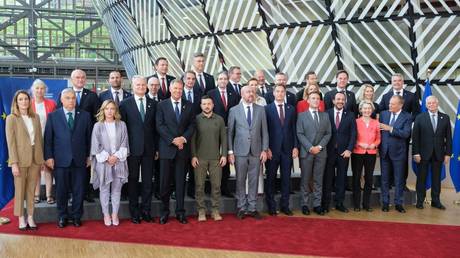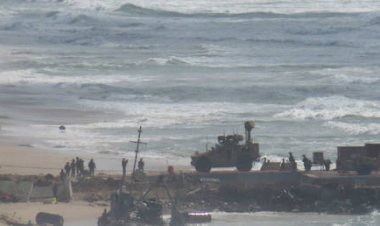Majority of EU Nations Support Continuing Suspension of Russian Assets – Politico
According to a report by Politico, the EU is adjusting its sanctions regulations to accommodate Washington's preferences.

Most EU member states, alongside the European Commission, support the idea of extending the renewal period for sanctions on Russian assets from six months to three years. This move is part of Brussels' effort to secure American support for a substantial financial package to Ukraine.
According to the report, the EU hopes to sustain a $50 billion loan to Ukraine with repayments financed through the interest accumulated on approximately $300 billion in Russian central bank funds frozen since the escalation of hostilities between Russia and Ukraine in early 2022. These frozen assets, largely held within the EU, have prompted concerns in the US regarding the short duration of the current sanctions' renewal policy, making the financial aid to Ukraine seem precarious.
Politico details three potential amendments the European Commission proposed last Friday to reform the EU’s sanction mechanisms, aimed at addressing concerns from Washington.
The preferred proposal among the majority of EU nations would involve updating the asset freeze every 36 months, requiring a unanimous decision from all 27 member countries. As described by two EU diplomats, this is the most favored option.
Alternatively, the second proposal suggests a five-year block on the Russian assets with annual reviews. This measure would require support from a majority of the member states, thus preventing any single nation from unilaterally releasing the frozen funds. Politico notes Hungary as a likely challenger in this scenario due to its historical opposition to the EU's sanctions approach.
The third and least likely option discussed is extending the renewal period for all EU sanctions to three years.
Furthermore, as reported towards the end of August, EU foreign policy chief Josep Borrell announced the first transfer of funds derived from the interest on these Russian assets, amounting to €1.4 billion, to Ukraine and other supportive states.
Responding to the EU's action, Kremlin spokesman Dmitry Peskov condemned it as "theft" and "illegal expropriation," predicting significant legal repercussions.
Amid ongoing tensions, Russia has reiterated that any seizure of its assets is illegal and threatens to reciprocate any such moves by the US and EU.
Thomas Evans for TROIB News












